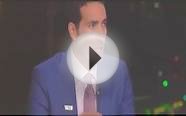 When you apply for federal student loans, your credit score isn’t taken into account. The only exception to this rule is the PLUS Loan. However, if your federal loans won’t cover your college expenses, and you can’t pay out of pocket, you may end up applying for private student loans (and these will require a credit check). By now, most of us know that private loans don’t offer as good of terms as federal loans and aren’t very forgiving toward late or missed payments. But private loans are even more dangerous to consumers with low credit scores due to higher interest rates and what some call “bad credit student loans.” In fact, this issue is one of the leading causes of the national student loan crisis. If you are looking for ways to fund your higher education, it’s important to stay calm and be sure to avoid bad credit student loans. This advice is particularly relevant to adults who are attending college later in life and have lower than average credit scores.
When you apply for federal student loans, your credit score isn’t taken into account. The only exception to this rule is the PLUS Loan. However, if your federal loans won’t cover your college expenses, and you can’t pay out of pocket, you may end up applying for private student loans (and these will require a credit check). By now, most of us know that private loans don’t offer as good of terms as federal loans and aren’t very forgiving toward late or missed payments. But private loans are even more dangerous to consumers with low credit scores due to higher interest rates and what some call “bad credit student loans.” In fact, this issue is one of the leading causes of the national student loan crisis. If you are looking for ways to fund your higher education, it’s important to stay calm and be sure to avoid bad credit student loans. This advice is particularly relevant to adults who are attending college later in life and have lower than average credit scores.
Credit Checks for Student Loans
There is one type of federal aid that requires a credit check: the Direct Plus Loan. This loan is offered to parents to help pay their child’s way through school and to graduate and professional students. The credit check determines if the applicant has “adverse credit, ” and the government considers the following as signs of adverse credit:
- Bankruptcy (not including Chapter 13)
- Foreclosure proceedings underway or a foreclosure in the last five years
When parents are denied the PLUS loan, their child will be given extra Stafford loans. Graduate students and professional students who are denied will need to get a cosigner or look elsewhere for loans. Let’s take a closer look at cosigning.
Cosigning for Student Loans
Cosigning for student loans should generally be avoided. The co-signer is equally responsible for the debt, and if a co-signer is required, it means that the applicant either has no credit history or one that shows risky financial behavior.
Co-signed loans, especially if co-signed by someone with excellent credit, can bring you much better repayment terms. But, when things go wrong with co-signed loans, they go really wrong. Hear what Jerry Cruthis has to say:
As an alternative to co-signing, consider a more affordable school such as a local community college. Also, consider the possibility of postponing college to improve your credit score and save money so you won’t have to borrow as much.
Obtaining Bad Credit Student Loans
The other option when you have exhausted federal funding is to look elsewhere for a loan. This will be a private loan, which means that it will have less favorable repayment terms. A private loan will have higher interest (sometimes variable) and won’t be forgiving if you miss a payment.
This is always the case when we compare federal and private student loans, but this is amplified when we look at bad credit student loans. When you approach a private student loan lender with bad credit, you are looking at an uphill battle with student loan debt.
Here’s Why.
Thanks to a great post by finaid.org about credit scores and student loans, we know that private student loan lenders create tiers with their interest rates, and these tiers are based on credit scores. In other words, borrowers with high credit scores will get the best interest rates, and borrowers with bad credit will get the highest interest rates.
[Read more about student loans and credit scores]
Each tier down experiences a 1% to 2% increase in interest. The “bad credit” tier will usually be paying around a 6% higher interest rate than those with great credit. Also, private student loan lenders tend to charge higher fees to borrowers with bad credit, and sometimes they roll these fees into the interest rates. This means that bad credit student loans can cost consumers 20% to 40% more in monthly payments and even up to 100% more in interest.
These figures are unbelievable, and it’s no wonder that so many people are in deep financial trouble as a result of private student loans. Let’s compare a student loan borrower with good credit and a borrower with bad credit student loans:
To simplify the chart we assumed that 3% in fees is equal to 1% in interest (this is generally accurate). So, 9% of fees equals 3% in interest. There was already a 6% difference in interest based on the credit score, and the added fees brought this up to a 9% difference! As you can see, the bad credit student loan led to some really bad repayment terms, and the borrower ended up paying more than double the original loan amount!
The sad reality is that in all likelihood the borrower of the bad credit student loan won’t be able to make all the monthly payments on time. With a struggling job market and lots of other debt (as evidenced by the low credit score) this borrower is likely in serious financial trouble. This is why the student loan debt crisis is so serious, and this is why private student loans, in particular, can be devastating.
Avoiding Bad Credit Student Loans altogether
The borrower in our example could have been in a much better situation if he or she had a better credit score. In fact, by postponing college for a year or two, the borrower could have boosted their credit score and gotten a much better interest rate, all while saving money to put toward college expenses and lessen the need to borrow. The borrower also could have looked at more affordable education options, such as community college or technical school.
Is it Better to Wait?
If you are having a hard time getting a student loan with good terms, take a step back and ask if it’s really worth it. Do you want to deal with bad credit student loans and potentially pay more than double the original loan amount? Consider waiting until you improve your credit score, and keep a close eye on your credit report along the way. Talk to a ClearPoint counselor about student loan debt or other credit tips that can potentially help you improve your credit situation.
Interesting facts
Additional information







|
Loan Calculator - What If? Mobile Application (Rootbeer Software LLC)
|








